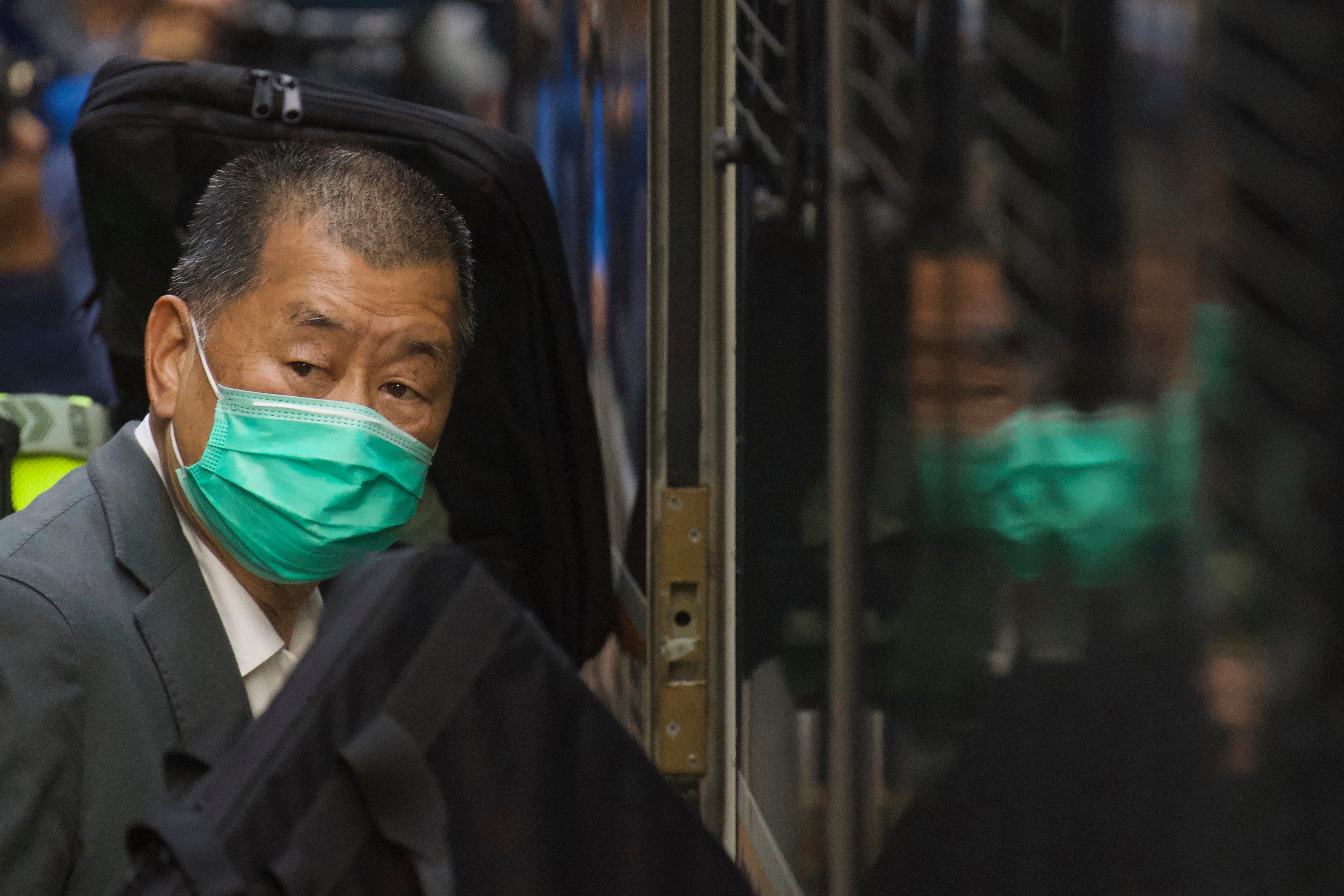Next Digital trading halted after Jimmy Lai's assets frozen
The Hong Kong stock exchange has halted the trading of Next Digital shares, days after authorities froze assets belonging to its founder Jimmy Lai

Your support helps us to tell the story
From reproductive rights to climate change to Big Tech, The Independent is on the ground when the story is developing. Whether it's investigating the financials of Elon Musk's pro-Trump PAC or producing our latest documentary, 'The A Word', which shines a light on the American women fighting for reproductive rights, we know how important it is to parse out the facts from the messaging.
At such a critical moment in US history, we need reporters on the ground. Your donation allows us to keep sending journalists to speak to both sides of the story.
The Independent is trusted by Americans across the entire political spectrum. And unlike many other quality news outlets, we choose not to lock Americans out of our reporting and analysis with paywalls. We believe quality journalism should be available to everyone, paid for by those who can afford it.
Your support makes all the difference.The Hong Kong stock exchange on Monday halted the trading of Next Digital shares, days after authorities froze assets belonging to its founder Jimmy Lai.
Next Digital said in a filing that it requested the halt after authorities announced that it had frozen Lai’s assets Friday. Next Digital publishes pro-democracy tabloid Apple Daily, and the company was founded by Lai, its controlling shareholder.
The freeze comes as Lai and nine other pro-democracy activists appeared in court Monday, facing charges related to inciting others to take part in an unauthorized assembly in October 2019.
Lai is currently serving a 14-month prison sentence for his role in two separate unauthorized assemblies in 2019, during a period where massive anti-government protests took place as Hong Kong residents protested a proposed extradition bill that would have allowed Hong Kongers to be extradited to mainland China to stand trial. The bill was later withdrawn, although protests evolved to include broader demands for democracy in the city.
Months of anti-government protests led Beijing to tighten its control over Hong Kong, and last year it imposed a national security law on the city that is widely seen as a crackdown on dissent. The law criminalizes secession, subversion, terrorism and foreign collusion, and police have so far arrested over a hundred people under the legislation.
Lai is under investigation by the national security department for allegedly colluding with foreign powers and endangering national security.
His assets were frozen under the national security law, which states that if there are reasonable grounds to believe that property is related to a national security offense, then “relevant persons and organizations must not, directly or indirectly, deal with certain property which is reasonably suspected to be related to offences endangering national security," the government said in a statement Friday.
In recent months, Hong Kong police have arrested most of the city’s pro-democracy activists, and have put prominent activists such as Joshua Wong and Agnes Chow behind bars. Most of the pro-democracy activists arrested are still in police custody.
Last week, the Taiwan Apple Daily newspaper said it would stop publishing a print edition. The paper said it had been losing money, and Next Digital could no longer support it because “pro-China forces” had blocked access to advertising for its flagship Apple Daily newspaper and other publications in Hong Kong.